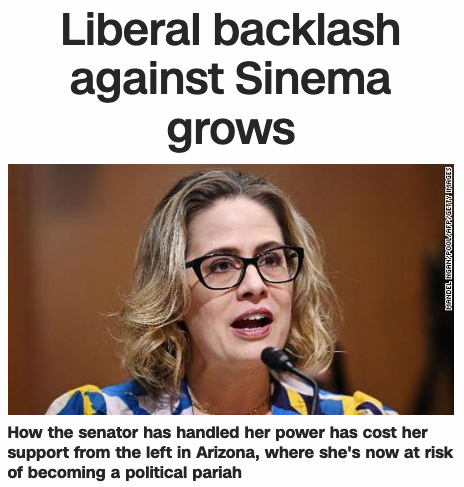



Unless he caucuses with R’s this isn’t true still.
So most of the first 100 of the 200 page dissertation goes into details about the Hutu vs Tutsi post-colonial situation, the immediate pre-genocide situation, and the actual genocide. Much of it seems like reporting. It’s not bad, and she organizes different factual sources well, but there’s not much argument or theory. Her thesis seems to be, which may well be right, that the way the Belgians ran things, supporting mainly the Tutsi over the Hutus, helped develop a more racialized society than previously existed and exacerbated the existing “bi-racial” social/tribal context. I can’t evaluate the accuracy of this or whether there’s anything original in it.
She does start to get into more theoretical issues around pg. 100, where good ole Foucault shows up. I don’t care much for Foucault, and believe him to be much admired by both incoherent leftists and rightists, basically anyone who wants a good “stick it to the man who wants to stick it to you” source. Anyway, here’s part of the argument she starts to develop:
Prior to colonialism, targeted pogroms such as this did not exist. Physical
skirmishes and even small wars had occurred in pre-colonial times, usually
revolving around land, cattle, and local control. Never before the Hutu Revolution
had targeted, unprovoked killings occurred – and never targeted towards a
racialized minority. In racializing the Hutu and Tutsi people in the 1920s, the
Belgians created a race distinction between two peoples where none had
previously existed. Speke’s race theory in action forty years later led to a
manufactured race struggle.Foucault has argued that race struggle defines one race, the superrace, as
ìthe race that is portrayed as the one true race, the race that holds power and is
entitled to define the normî and the subrace as those whom the superrace must defend society against.261 In post-colonial Rwanda, the Hutu elite defined
themselves as the one true race, having internalized the Belgian ‘story’ of Tutsis
being non-indigenous peoples from other regions of Africa. After years of
subjugation from the Tutsis at the hand of the Belgians, Hutu elites seeking power
adopted the belief that Hutus and Tutsis were indeed separate races and that the
Tutsi race presented a threat to the sanctity of the future state of Rwanda.Necropolitics in action – Massacres of Tutsi in Rwanda
Over the course of nearly three years, Hutus sought a revolution – not to
be free from the Belgian colonialists – but to be free from domination by the
Tutsis and to invert that relationship so the Hutus would take on the attributes of
Foucault’s superrace and the Tutsi the subrace, considered a threat to the state
and therefore fair game for subjugation and persecution…
In Gitarama, on November 2, 1959, one day after the beating of
PARMEHUTU leader Dominique Mbonyumutwa, a number of Tutsi local
leaders were killed, and thousands of Tutsi homes were burned in the surrounding
area. Within two days, the attacks had spread to Nyanza, where looting and
burning of homes continued…
Fund this part interesting, but not sure how to evaluate as I haven’t read Susan Powers’ Problem From Hell book.
Organization in the Execution
Many westerners believe that the genocide was a surprise ‘descent into
hell,’ a chaotic setting in which frenzied killers attacked victims based on old
hatreds and ethnic strife. This picture of the genocide is based on western racist
notions of African communities, and displays a profound lack of understanding of
the highly organized structure within Rwandan society both before and during the
genocide. The Rwandan genocide was carefully planned and prepared for, and the
speed and efficiency with which it was executed serves as chilling truth.On April 4, just two days before the start of the genocide, Thèoneste
Bagosora stated to Lt. General Romeo Dallaire and others gathered at an UN
reception, “the only plausible solution for Rwanda would be the extermination of
the Tutsi.”455 This statement was one of many that foreshadowed what was to
come. It came as no accident. Within 45 minutes of the President’s death,
roadblocks had been established around the city. Executions of those on the death
lists began shortly thereafter. 456
I’m at pg. 180 out of around 200. I’d say it’s decent organization and factual reporting but doesn’t seem particularly original or interesting in any of the (quite limited) theoretical argument thus far.
Kind of a prerequisite for entering federal politics.
I’m tempted to quote the whole conclusion but it’s a few pages so I’ll just quote a section for flavor.
As Tutsis in the diaspora began to prepare for a civil war in order to return
to their homeland, Hutu Power factions within the Habyarimana regime utilized
propaganda to effectively dehumanize the Tutsi minority. Once dehumanized, the
idea of extermination of the subrace threat, that already lived as people without
social or political rights in the community, was not difficult to imagine. And as the
international community agitated for a peaceful solution to the civil war rocking
Rwanda in the early 1990s, the options facing the Hutu Power elite were grim
indeed. In order to pacify the international community, the sovereign would be
required to submit to a great loss of power, an establishment of the rule of law and
the end to the state of exception.The idea that extermination of an entire portion of one’s population as a
solution to the problems a sovereign faces is rooted in Agamben’s concept that the
state of exception creates an atmosphere wherein a sovereign (government) strips
its citizens of their sociopolitical being – where People are reduced to people,
‘naked people’ devoid of social political capital or value. For the Hutu Power
faction in Rwanda, Tutsi were not People. They were simply a threat to the
existing power structure, a structure that had operated since independence without
regard to the juridical order.
Again, it seems like a decent reportorial account of the Genocide and underlying history. The only two theorists she references with any substance seem to be Foucault and Agamben, but she doesn’t engage much with their work, just some quotes and buzzwords (“necropolitics”; “People” vs “people”) here and there without genuine engagement.
I’d say it’s good amount of work and would be a solid Master’s thesis, but it’s pretty limited as a work of scholarship and nowhere can you really see her intellectually engaging with significant questions. It’s the work of a worker bee doing workmanlike work, which is certainly better than most in Congress could do, but not something that could land one a job as a professor.
That said, she did read through a lot of the propaganda and speeches of various internal actors from 1950s to 1990s, visited Rwanda in 2010, and seems to have a decent grasp of the “racial” dynamics and ideology in the country and related government acts over much of the post-colonial period. It doesn’t really offer much insight into her personally (at least based on a skim without knowing the background material well). It does show a concern for dehumanization as a political program and that it should be prevented as it leads to bad things.
It was written in 2012, and many of the various Rwanda strongmen seem to have Trumpian tendencies, particularly toward vilifying the “other” or dehumanizing scapegoats for political purposes. I’m actually kind of shocked she didn’t seem to draw on her work much to raise the alarm about Trump, particularly regarding immigrants. She could have been pontificating about Trump weekly based on this research and helping to lead the opposition against him, but she seems to have mainly held her fire in favor of doing “good” politics.
Joe looking strong in the town hall!
Sarcasm?
Yes he is incoherent. It’s in Baltimore so I’m watching to see if any local twitter personalities show up. He’s strung together some ok answers, but he’s been floundering a lot.
Must be the stutter
Media dipshits fainting over Biden finally getting on board re filibuster. Zero chance anything actually happens, lol media
Biggest news from this town hall on this bill, to me, is that corporate tax hike is just straight dead. Everything else we kinda already knew.
Will never happen, but what if Democrats went full anti-Shor and just explicitly ran against their own party’s least popular members and for filibuster nuke? I’m just not at all convinced there are voters who exist who might vote D for Senate and also give a fuck about the filibuster enough to change their vote.

President is on team WAAF
https://twitter.com/LoopEmma/status/1451315678665904133?t=y-rKY22Ass0GMiUKxczfng&s=19
Quality reporting there. The POTUS using swears would have been a big deal if this was still the 1800s.
Isn’t her thesis the commonly accepted narrative about the basis of the genocide? This being that the Belgians had chosen and supported the Tutsi minority as the power group in the country, leading to long-time resentments among the Hutus.
Progressives most likely with mancinema coming in 2nd
Feinstein’s corpse?